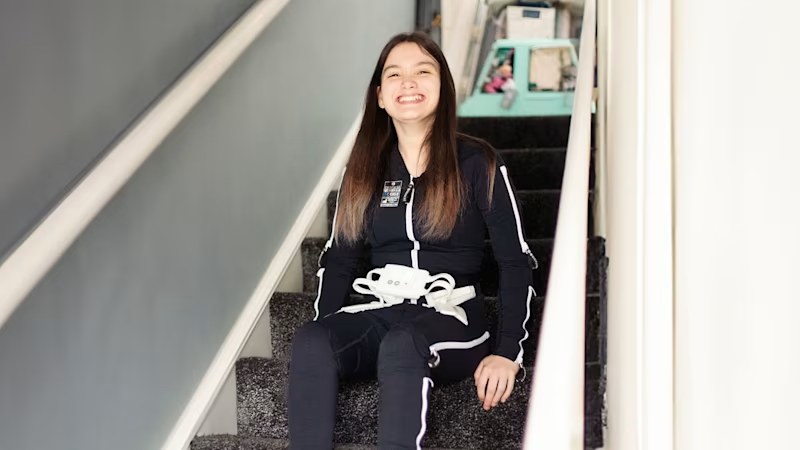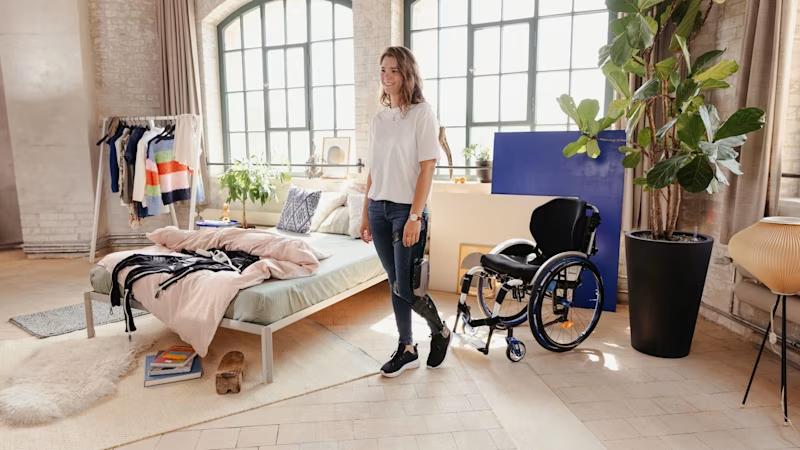Orthotics and NeuroMobility.



Orthotics and NeuroMobility.



Orthotics and NeuroMobility.



Orthotics and NeuroMobility.



At Ottobock.care, we take time to understand your specific needs and goals and then using a range of our orthotic and NeuroMobility solutions create a bespoke solution for your needs. From custom orthotics, off-the-shelf solutions, functional electrical stimulation (FES) devices, footwear, and neurostimulation suits, we have a range of devices to enhance your mobility and relieve discomfort.
Discover our solutions.
For more than 40 years, Ottobock.care in Ireland has been supporting patients to regain or maintain their freedom of movement. Our goal is to help people move more freely and with less pain, correct malpositions, and provide effective support in the healing process. Orthoses and supports have proven to be particularly effective for these purposes and they allow injured ligaments, joints, and bones to heal. In addition, they can preserve functionality even in permanently impaired limbs and reduce pain.

Agilium Range
Osteoarthritis is the most common form of arthritis, it most commonly develops in the knee and causes pain. Knee or lower-leg-foot-braces like those in the Agilium Range are specifically designed to relieve painful areas in the knee joint and can provide sustained relief from knee pain.

Agilium Range
Osteoarthritis is the most common form of arthritis, it most commonly develops in the knee and causes pain. Knee or lower-leg-foot-braces like those in the Agilium Range are specifically designed to relieve painful areas in the knee joint and can provide sustained relief from knee pain.

Exopulse Mollii Suit
With the touch of a button, the Exopulse Mollii Suit gives you the power to control the symptoms of spasticity – a debilitating movement disorder that’s common in people affected by cerebral palsy (CP), multiple sclerosis (MS), stroke, and other neurological conditions.

Functional Electrical Stimulation (FES)
FES is a treatment that applies small electrical charges to a muscle that has become paralysed or weakened due to damage to your brain or spinal cord. The electrical charge then stimulates the muscle to contract, causing the joint to move.

WalkOn Family
People with permanent dorsiflexor weakness from conditions such as drop foot may require an orthosis that lifts their foot while walking. The WalkOn Family is a range of ankle foot orthoses (AFOs) enabling users to walk more safely.
Conditions and Rehabilitation.
There are many different illnesses and diagnoses that require the need for orthoses and NeuroMobility devices – whether right from the start of treatment or afterward to support therapy. Learn more about some of the most common conditions and how we can support you.

Cerebral Palsy
Cerebral Palsy (CP) is a group of movement disorders that appear in early childhood, caused by a brain injury that develops before, during, or soon after birth.

Cerebral Palsy
Cerebral Palsy (CP) is a group of movement disorders that appear in early childhood, caused by a brain injury that develops before, during, or soon after birth.

Teens with Cerebral Palsy
Your teenage years can be tough when you have Cerebral Palsy (CP), being able to move freely is more important than ever, sometimes it helps to hear it from someone your age, so we asked a real expert: a teen with CP to share how they navigate life.

Drop Foot
Drop foot, or dorsiflexor weakness prevents you from lifting your foot and toes properly when walking, affecting your balance, general mobility, and self-confidence.

Osteoarthritis
Osteoarthritis is the most common form of arthritis, and most often develops in the knee. The diagnosis can make those affected feel uncertain, but there are many options for living an active life with osteoarthritis.

Spinal Cord Injury (SCI)
A spinal cord injury is a serious, traumatic event that can put many life-changing limits on your mobility: from weakness in your limbs to muscle spasms, chronic pain, and complete loss of muscle control.

Stroke
After a stroke, survivors can be left with long-term problems that can affect all aspects of their life. Treatment depends on the type of stroke you have, including which part of the brain was affected and what caused it.
